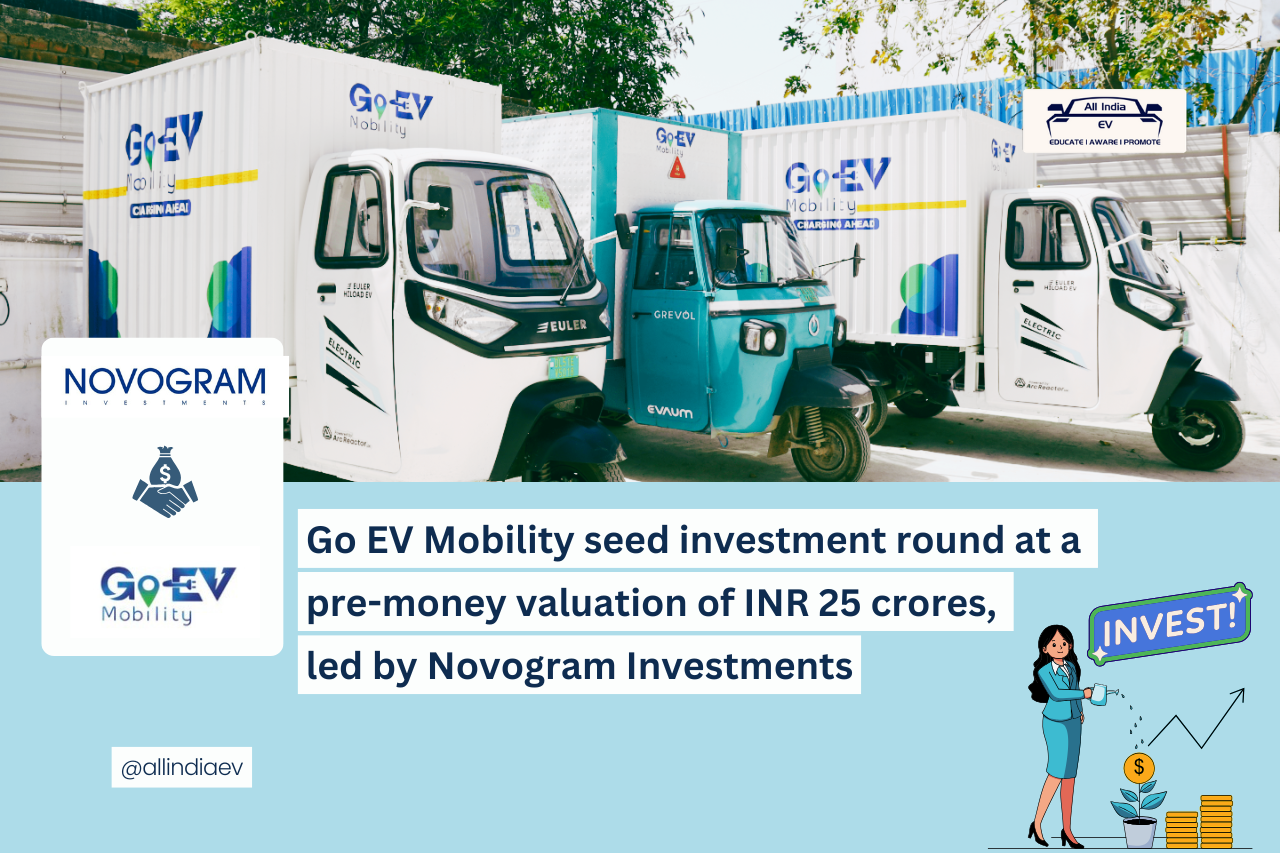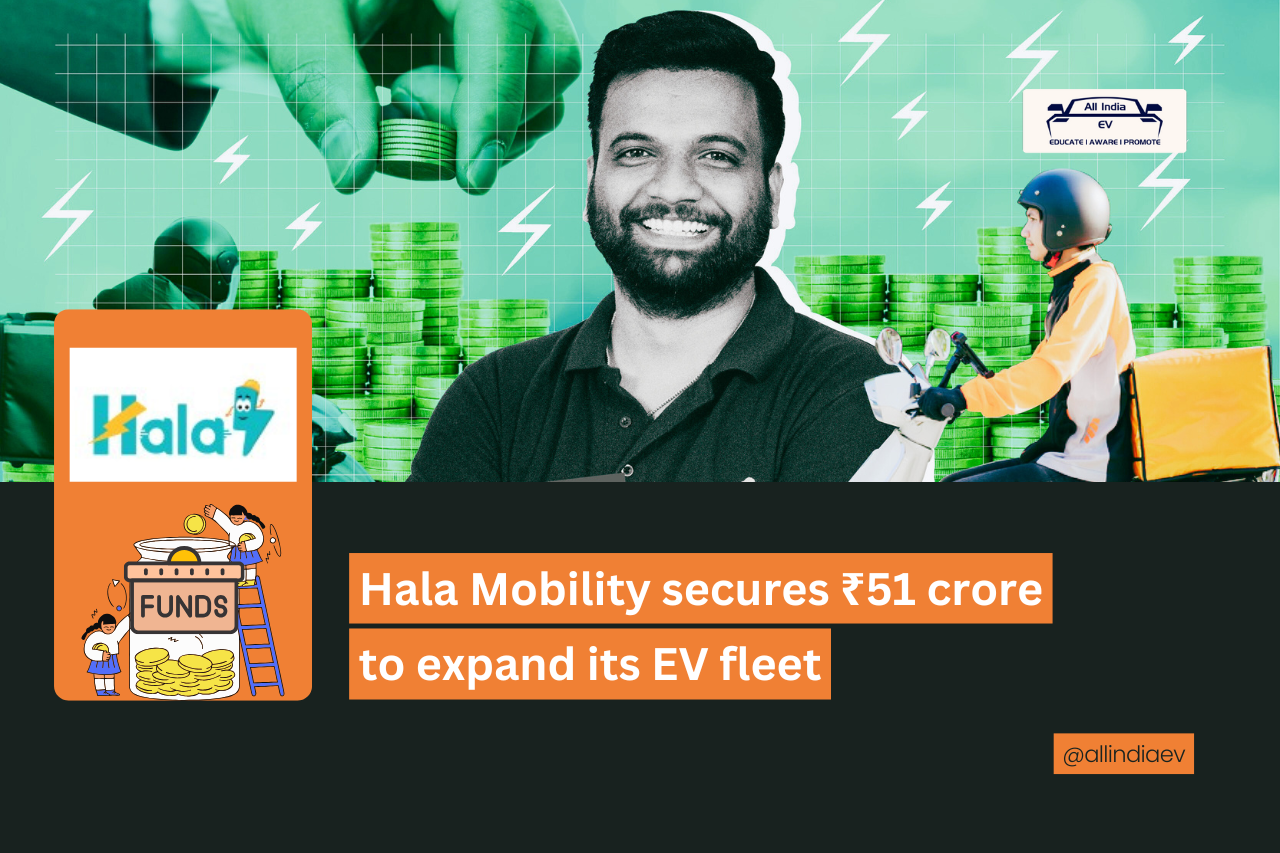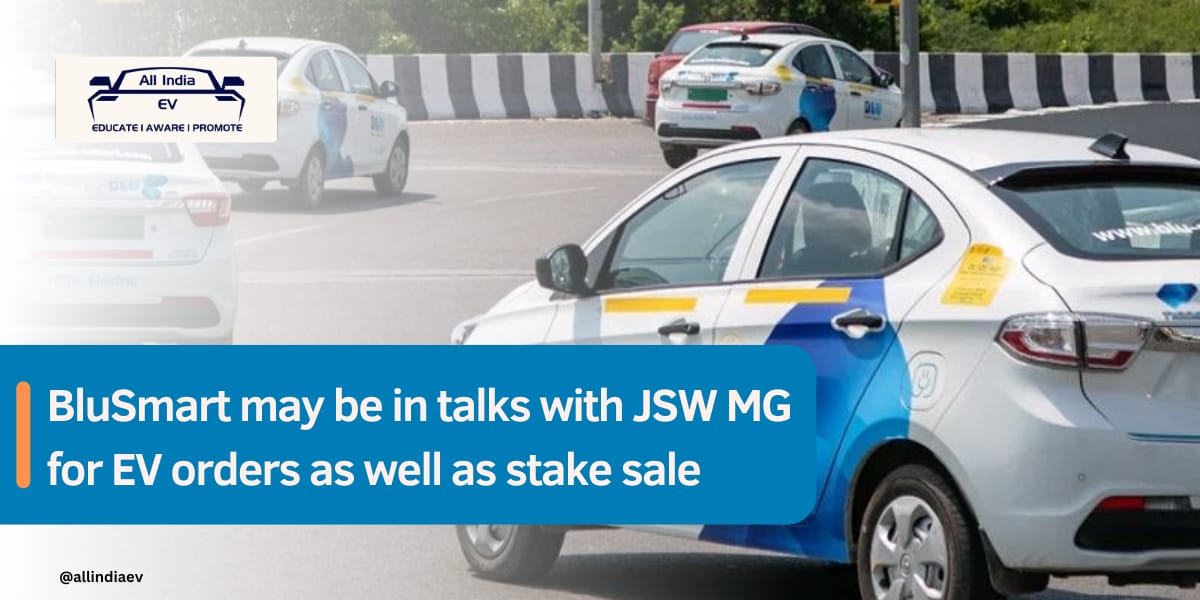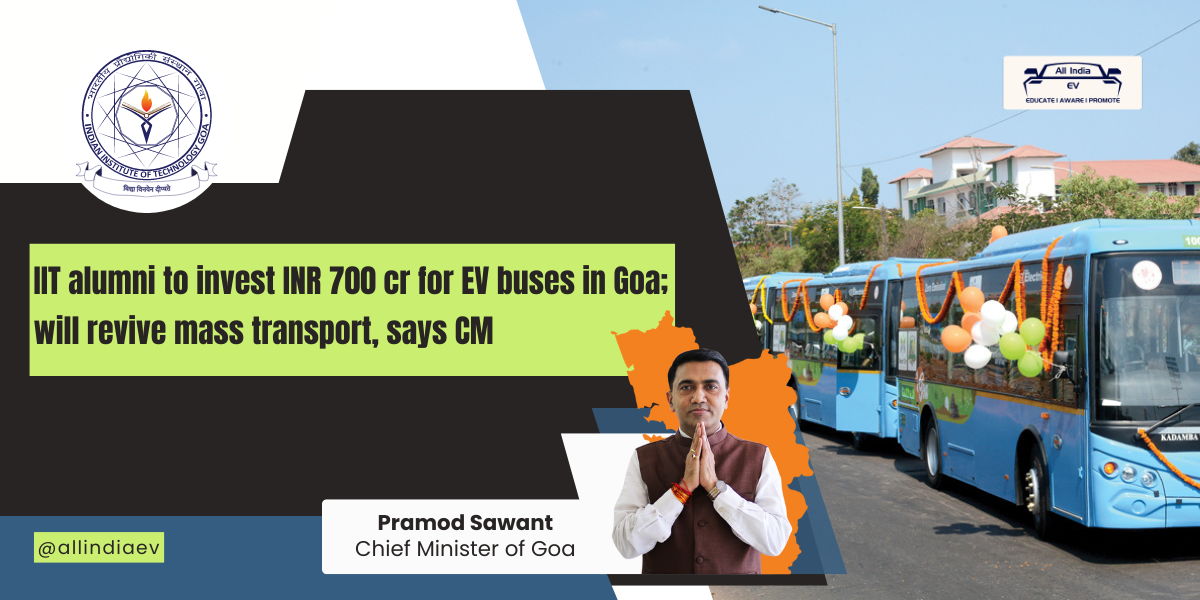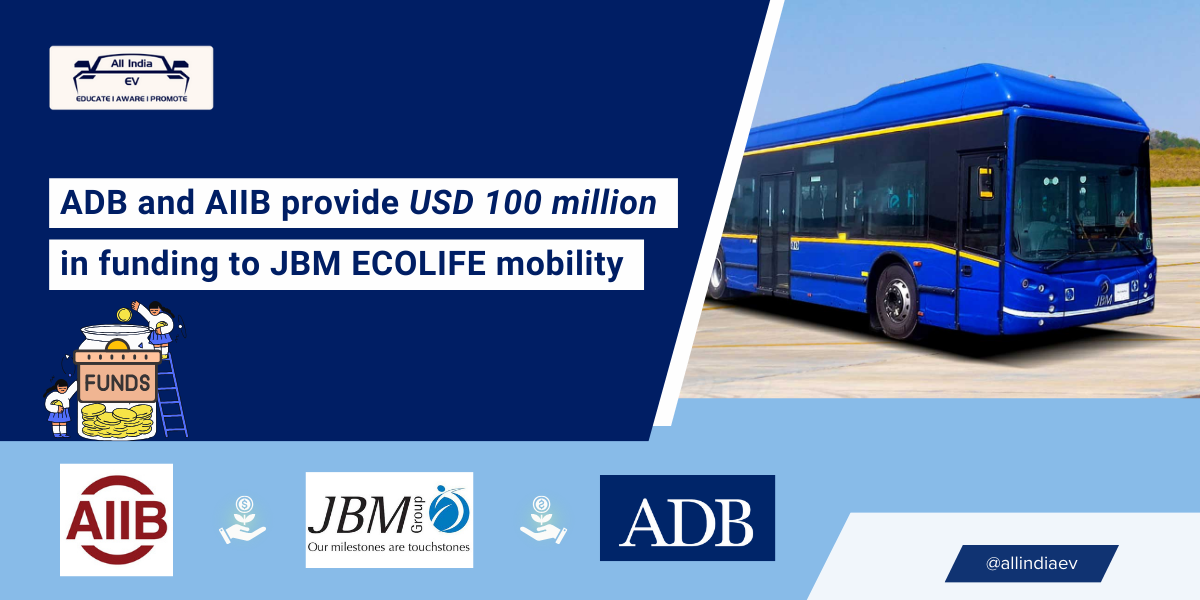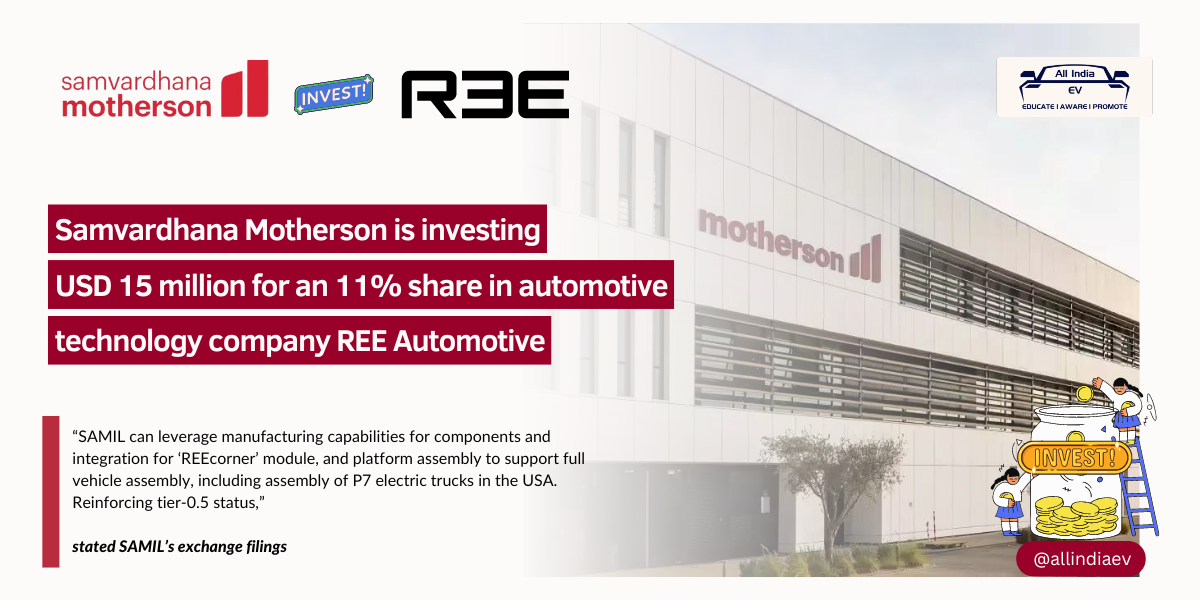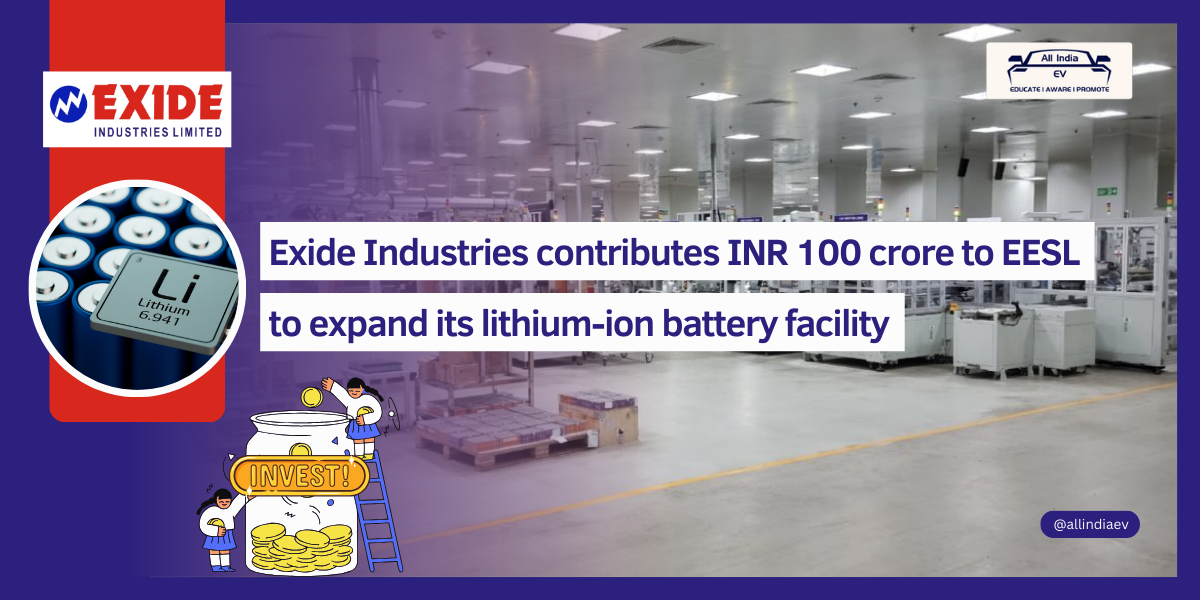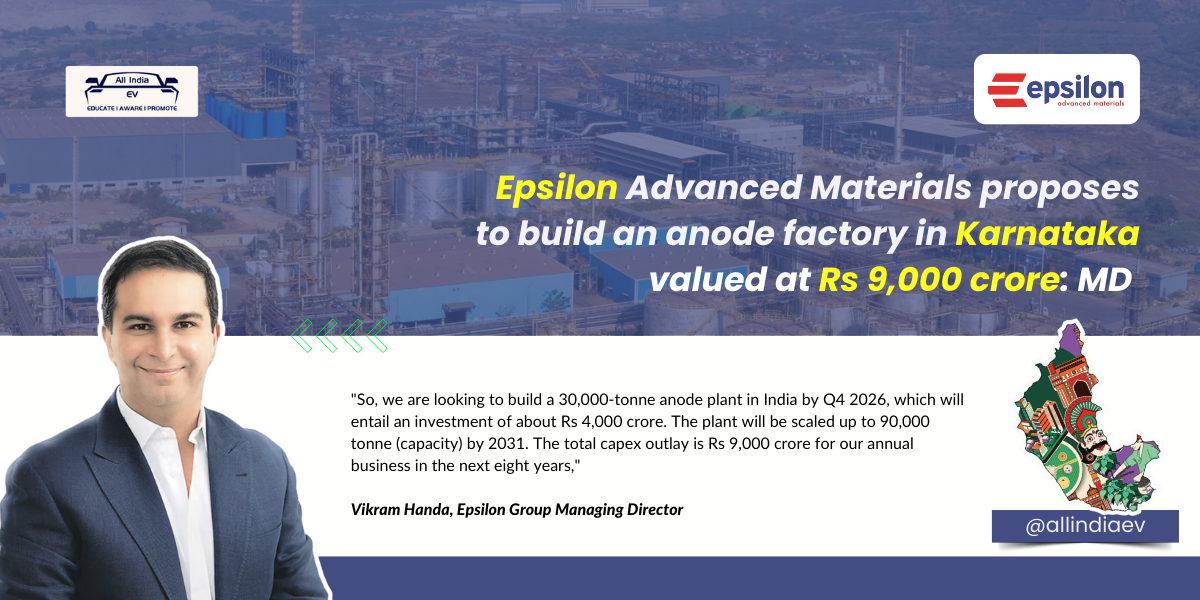Investments & Funding

Go EV Mobility Secures Significant Seed Funding
Go EV Mobility Secures Significant Seed Funding Go EV Mobility, a pioneering electric vehicle company,…
Hala Mobility Secures INR 51 Cr Funding to Expand EV Fleet and City Presence
Hala Mobility Secures INR 51 Cr Funding to Expand EV Fleet and City Presence Hala…
Vajram Electric Acquires 40% Stake in Varcas Automobiles
Vajram Electric Acquires 40% Stake in Varcas Automobiles to Strengthen EV Market Presence In a…
BluSmart Explores Partnership with JSW MG for EV Growth
BluSmart Explores Partnership with JSW MG for EV Growth BluSmart, India's leading all-electric ride-hailing service,…
EV Buses to Get a INR 700 Crore Push in Goa, Says CM
EV Buses to Get a INR 700 Crore Push in Goa, Says CM Goa -…
JBM Ecolife gets $100 Million to Fuel Electric Bus Growth
JBM Ecolife gets $100 Million to Fuel Electric Bus Growth New Delhi, India - JBM…
Bengaluru EV Revolution Gets a Charge with $2.65 Million
Bengaluru EV Revolution Gets a Charge with $2.65 Million Bengaluru, India - The Climate Pledge,…
Samvardhana Motherson Pours $15 Million into REE Automotive
Samvardhana Motherson Pours $15 Million into REE Automotive Samvardhana Motherson International Ltd (SAMIL), a leading…
Exide Commits INR 100 Crore to Lithium-Ion Battery Project
Exide Commits INR 100 Crore to Lithium-Ion Battery Project Exide Industries Limited (EIL), a leading…
Epsilon Invests Rs 9,000 Crore in Karnataka Anode Facility
Epsilon Invests Rs 9,000 Crore in Karnataka Anode Facility New Delhi, India - Epsilon Advanced…


